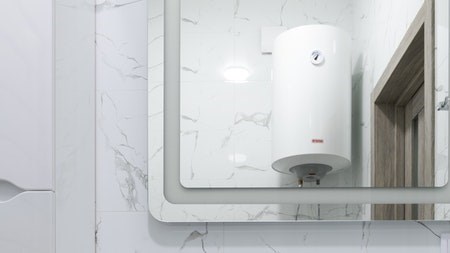A geyser is an underrated electrical appliance in a household which plays a pivotal role in the general wellbeing of property occupants. Regular mantainnce is therefore vitally important to ensure that you’re not left in the cold and also to reduce the costs associated with a faulty geyser.
What is the function of a geyser?
The basic function of a geyser is to convert electrical energy into heat energy which is then used to heat cold water collected in the geyser. The heat energy is transmitted through an element which is strategically positioned inside the geyser.
What type of geysers are used in housing development?
The market mainly offers three distinct geyser types. These are:
Electric geysers: Electric geysers are designed to function by convection which works by allowing the flow of electrical energy to heat water through an element in a pressurised tank. This type of geyser comes in different shapes and sizes with stainless steel and copper being the most commonly used materials used to manufacture them.
Gas geysers: Gas geysers are big tanks of water which depend on a gas burner that is placed beneath the bottom of the tank to heat water. These geysers can run on Liquefied petroleum gas (LPG) cylinders as well as natural gas which is supplied through a pipeline. Gas geysers are mostly considered outdated and are expensive to buy and install but are cost effective in the long term.
Solar geysers: Solar geysers work through the principle of circulation between the cold water tank, hot water cylinder, solar collector and pump. Cold water is allowed to enter the tank and then gets pumped to solar panels through a transfer fluid, the hot water then finds its way back into the hot water cylinder ready to be distributed to pipes for consumption. Solar geysers are economical and eco-friendly with admirable longevity. Because they depend on the power of sunshine, you will pay nothing to power it and they are generally low maintenance.
How long does a geyser take to heat up?
It’s important to note that the time it takes to heat up a geyser entirely depends on the type of geyser you are using. It has been proven that gas geyser heat up much quicker than electrical geysers. A gas heater can heat up 200 litres of water in an hour while an electrical can only heat up 100 litres of water in an hour. The standard timeframe regardless of the geyser type can be placed at a maximum of 2 hours.
What is the importance of geyser maintenance?
Efficiency
A well-maintained geyser performs better than a poorly maintained one. Calcium and other minerals which build up in your geyser, especially at the bottom, hamper the efficiency of a geyser.
Safety
A poorly maintained geyser is a safety hazard. Poor maintenance often leads to tank damage which can easily cause flooding or roof damage due to leaks if the geyser is placed above the ceiling board. In some instances, geysers can explode which can lead to life threatening injuries and loss of human life.
- Longevity
It goes without saying that a well-maintained geyser will serve you for a longer time without the need to replace it.
- Maintain capacity
Every drop of water in the tank counts. However, huge amounts of sediment which settle in the tank take up significant amount of space which should be taken up by water. A well-maintained geyser will therefore allow you to return the maximum amount of water in the tank.
- Saves money
By having a well maintained and efficient geyser, you will pay less for energy, water and urgent replacement which may arise.
How should geysers be maintained?
1. Clear out sediment
This is done by draining the tank of water, stirring the sediment at the bottom, then opening the water valve. Do this until you see clean water coming out of the outlet.
2. Lower temperature setting
If you set the temperature at a lower temperature setting, it means the water will heat faster and will also increase the geyser’s lifespan. You can do this by finding the temperature dial which is normally at the side of the tank, unscrew its cover and set the temperature at your preferred rate.
3. Keep it on for shorter periods of time
A well-maintained geyser should be able to heat water in a relatively short space of time. Avoid leaving the geyser for prolonged amounts of time because it also leads to shortened lifespan of elements and the tank itself.
4. Insulate pipes
Insulating the pipes assists in maintaining temperature. All you need to do in this regard is to buy a self-sticking pipe insulation from a hardware store. It’s advisable to buy one which matches the pipes' diameter.
5. Check anode rod twice a year
The anode rod in the geyser helps by being an anti-corrosion preventer. Rust and corrosion can settle around the rod. If not checked, this rod can be damaged which can lead to the tank getting damaged too.
6. Pressure valve
A pressure valve must never leak. If you notice any leak, drain the tank slightly, remove discharge tube and replace the valve.
7. Inlet and outlet
Check what type of materials have been used around the inlet and outlet. Metal is always better than plastic because its heat resistant.
8. Plugs
Avoid experiencing an explosion or fire from the geyser by making sure plugs are in good shape. As you check, look out for any whitish substance around the plugs which could be a sign of unnoticed sparks.
Watch this video to learn more on how to maintain a geyser: https://www.youtube.com/watch?v=ZTUNLIXKVu4
The above in a nutshell outlines the functionality and geyser maintenance guidelines you need to know.







